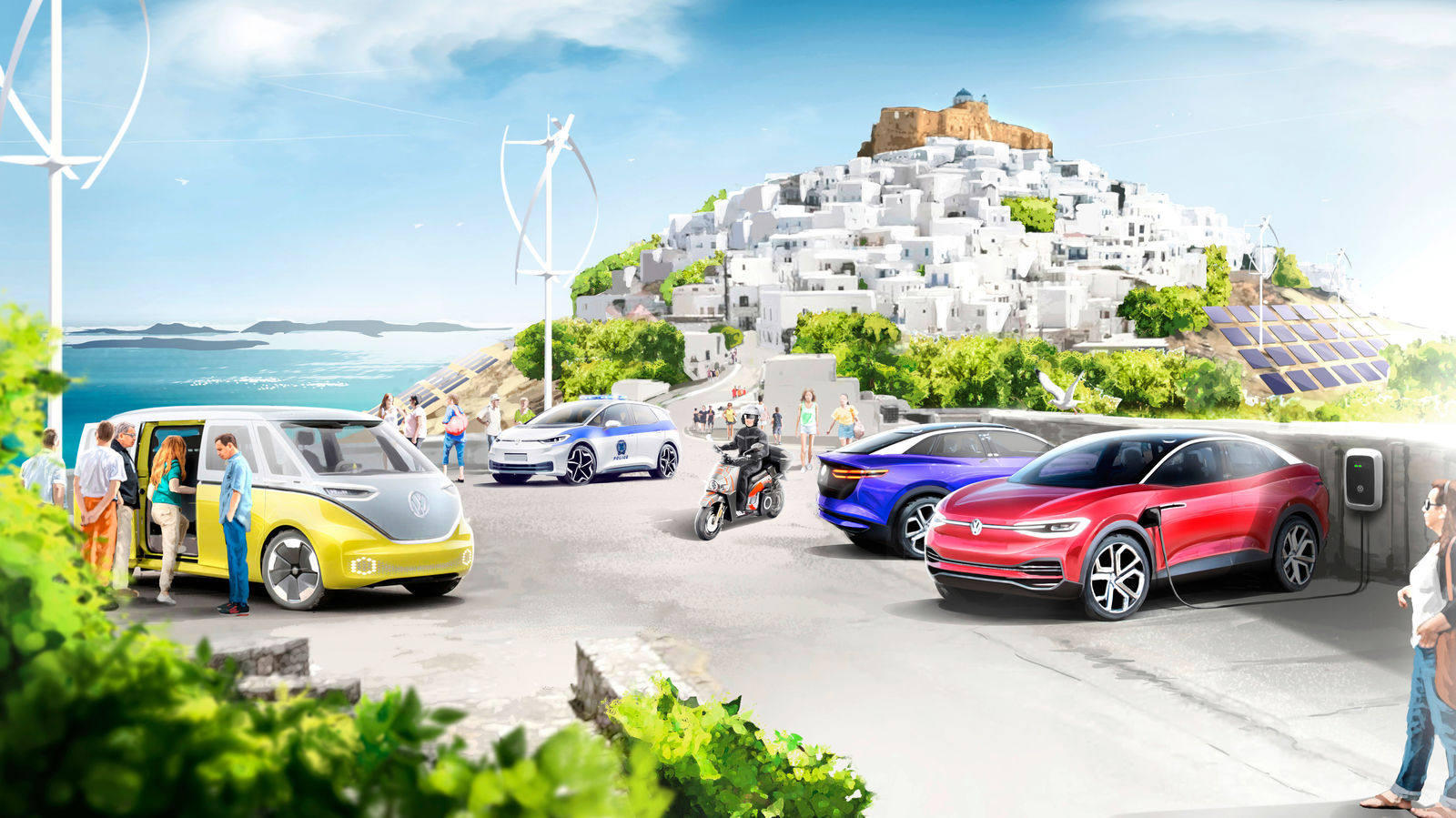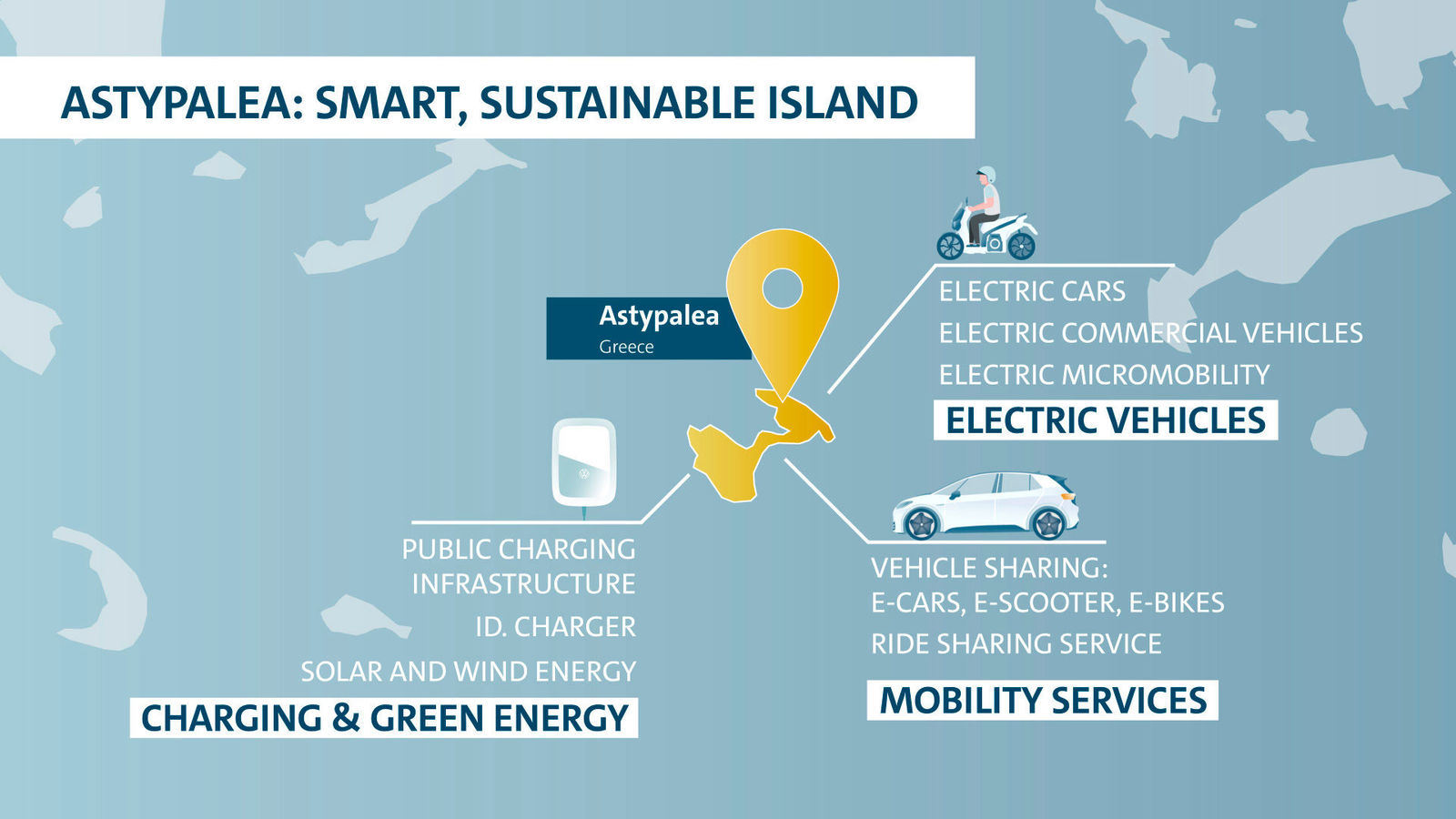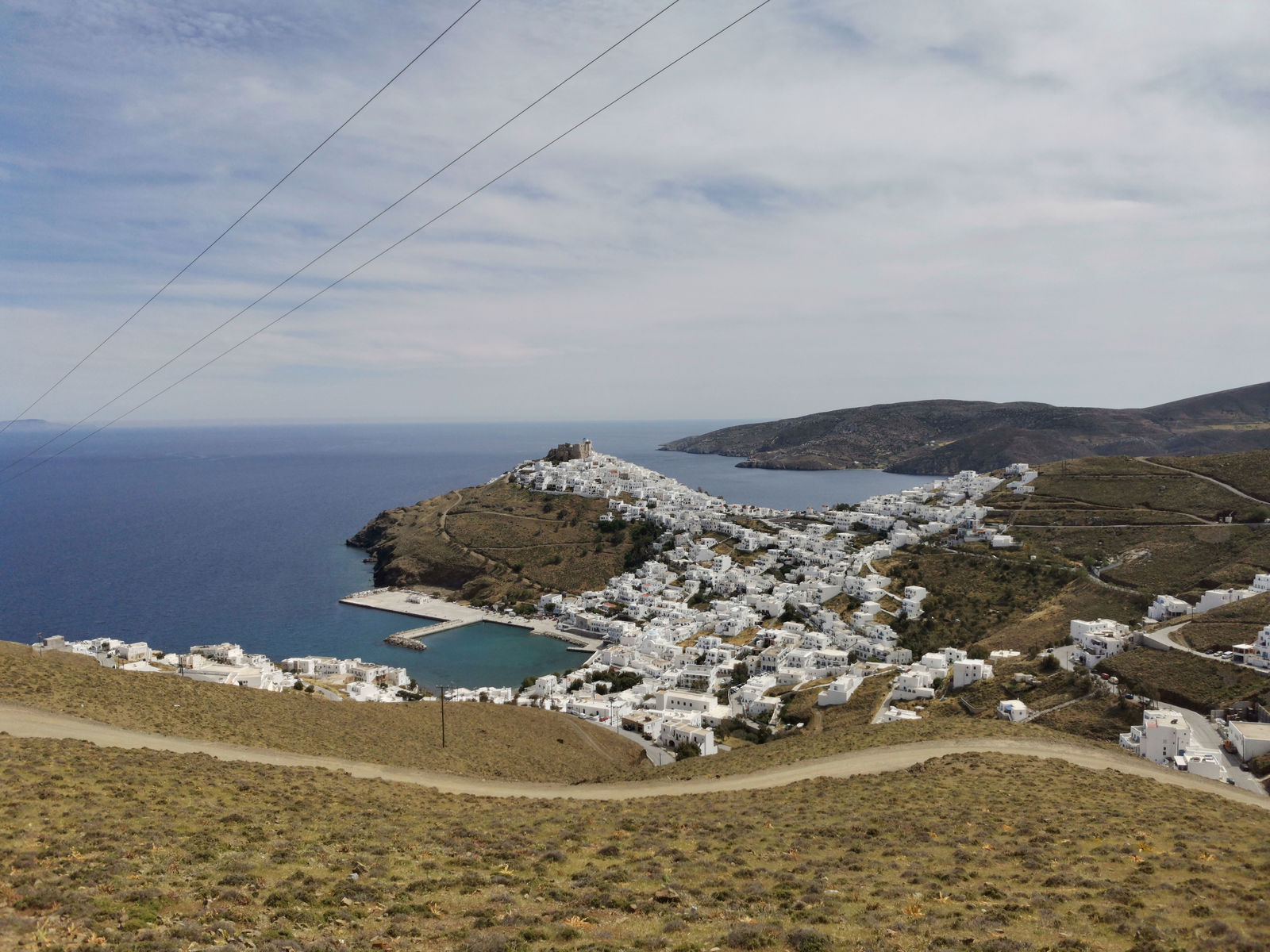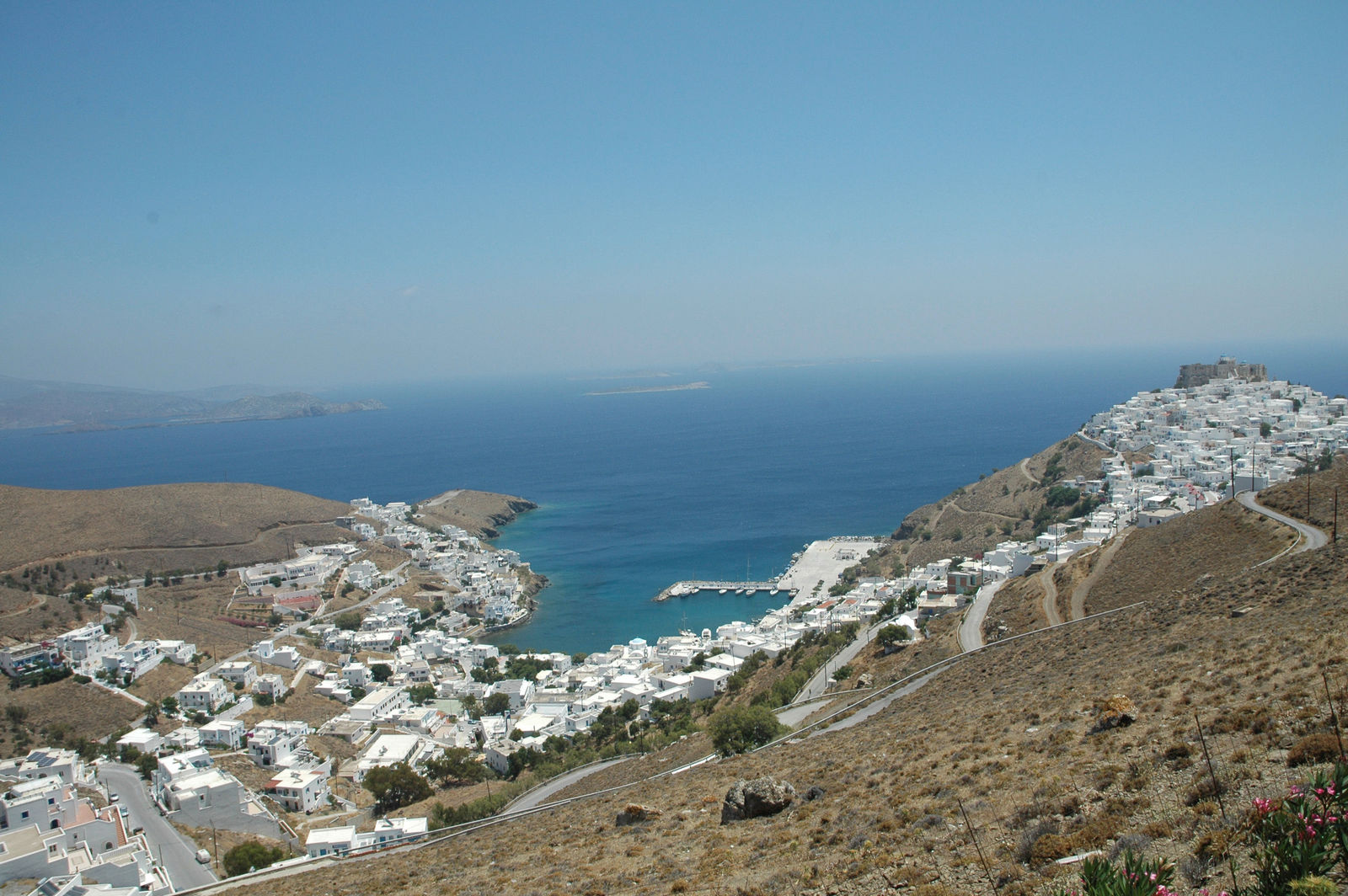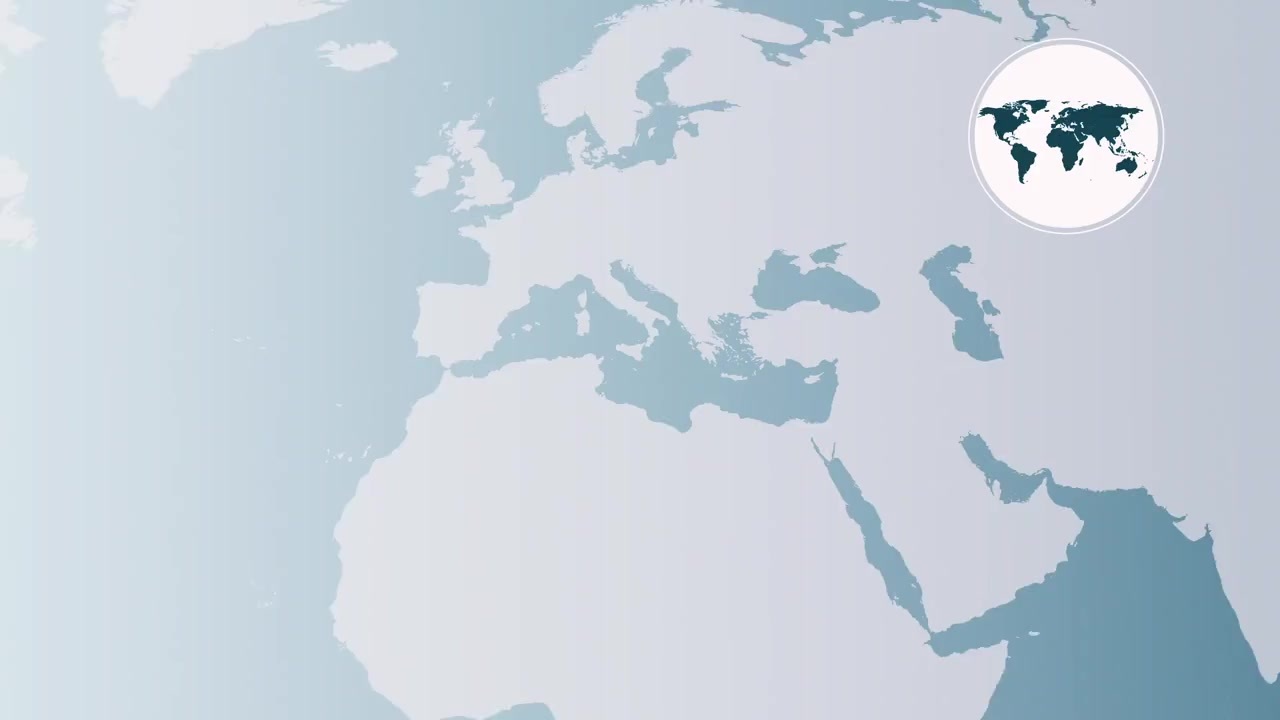Dr. Herbert Diess, CEO of the Volkswagen Group, said: “Politics, business and society have a common responsibility to limit climate change. Our long-term goal is climate-neutral mobility for everyone. And with the Astypalea project we will explore how to realize that vision already today. E-mobility and smart mobility will improve the quality of life, while contributing to a carbon neutral future.”
The Prime Minister of the Hellenic Republic, Kyriakos Mitsotakis, said: “I strongly believe in partnerships. Governments can't deliver on their own and the private sector isn't the answer to every question. That is why this ambitious endeavor is the result of the close partnership between the Greek state and Volkswagen Group. A world leader in the automotive industry that aims at making its fleet of vehicles and the company carbon neutral by 2050; coming together with an European nation in full transformation mode.”
Konstantinos Fragogiannis, Deputy Minister of Foreign Affairs, said: „Today is a great day for Astypalea, the Dodecanese Region, the Aegean Sea and all of Greece. Today we are launching the first ´Smart Green Island` project in our country, which marks a major change in our outlook. Electric transport and a holistic, green and sustainable action plan will have a positive impact on the everyday life of the island's inhabitants. Combined with a pioneering public transport system, we are turning futuristic ideas into reality. Today Greece shows that it is ready to adopt groundbreaking, innovative and flagship investments that take society to another level of connectedness, smart sustainability and innate usability.”
At the center of the project is an entirely new, cutting-edge transport system with digital mobility services, including an all-electric year-round ridesharing service designed to take the current very limited local bus service to a new level. Together with local partners, part of the traditional vehicle rental business will be transformed into a vehicle sharing service offering e-scooters from the Group’s SEAT brand and e-bikes in addition to electric cars. This alone will help to significantly reduce the vehicle fleet on the island. In total, some 1,000 electric vehicles shall replace about 1,500 vehicles with combustion engines. Volkswagen has just started to roll out its electric ID. family to the market, with the introduction of several new models planned over the next few years, in addition to the compact car ID.3 and the SUV ID.4. Commercial vehicles from local businesses as well as utility vehicles on the island – such as police vehicles, emergency services transport and public sector fleets – will also be electrified. Volkswagen will install its Elli chargers across the island to ensure a comprehensive charging infrastructure offering about 230 private and several public charging points.
The project is strongly supported by Volkswagen’s independent Sustainability Council as it serves as a blueprint for Volkswagen’s decarbonization strategy. Margo T. Oge, Member of the Sustainability Council and former Director of the Office of Transportation Air Quality of the U.S. Environmental Protection Agency (EPA): “Climate change poses an existential threat to humanity. E-mobility, in conjunction with renewable energy will help reduce the worst impacts of climate change. There is an
Aristotle saying: ‘It is during our darkest moments that we must focus to see the light.’ The Astypalea project is a light in the darkness and will help demonstrate the future of clean mobility."
Astypalea is an island in the southern Aegean Sea covering an area of some 100 square kilometers. It has a population of approx. 1,300 and is visited by some 72,000 tourists each year. Astypalea currently only has a very limited public transport service with two buses that only operate on a small area of the island. At present, energy demand is almost entirely met by fossil fuel sources. The island aspires to become a pioneer for sustainable tourism over the coming years and is therefore backing sustainable mobility. The Hellenic Republic supports this transformation within the framework of its National Energy & Climate Plan.
The Volkswagen Group is committed to the goals of the Paris Agreement. The Group is aiming to become climate neutral by 2050 and has drawn up the “goTOzero” sustainability strategy to achieve this target. The largest electric push in the automobile industry is at the heart of this strategy: The Group will be investing some €33 billion in e-mobility in the next five years and launch about 75 new electric models by 2029. Volkswagen’s compact ID.3, which recently went on sale, is the first of these models. The project on Astypalea is an integral part of the “goTOzero” strategy and is to serve as a blueprint for the total decarbonization of mobility. Under the umbrella of the Volkswagen Group, several brands are engaged in this endeavor – they include Volkswagen, SEAT, Volkswagen Commercial Vehicles, the energy service provider Elli and UMI Urban Mobility International with the We Share brand.








